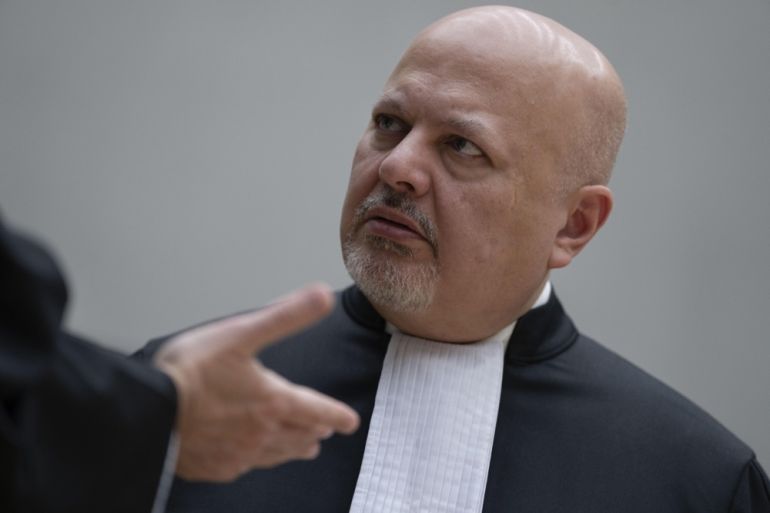The International Criminal Court (ICC) aims to hold people accountable for serious crimes like genocide, war crimes, and crimes against humanity. But under its top prosecutor, Karim Khan, the ICC faces claims of sexual harassment.
This hurts the court’s reputation for fairness and justice. Khan denies any wrongdoing, but two women have accused him of misconduct, including unwanted advances and abuse.
He has stepped aside temporarily while a UN investigation looks into it. This scandal questions the ICC’s own standards. The court pushes for accountability elsewhere, but if it ignores issues at home, it looks hypocritical.
These claims damage more than one person they weaken trust in the whole ICC. If leaders there can’t stay ethical, how can the world believe its judgments? The scandal adds to views that the court has double rules, where big figures avoid punishment.
Is the ICC a tool for control? Critics say yes, especially for Western powers targeting African countries. Set up in 2002 by the Rome Statute, the ICC says it’s independent. But most cases hit African leaders, while Western countries and allies skip scrutiny, even in big wars.
For example, Thomas Lubanga Dyilo from the Democratic Republic of Congo was the first ICC conviction in 2012 for using child soldiers. It was seen as progress, but people asked why similar acts elsewhere got ignored.
Uhuru Kenyatta, Kenya’s deputy prime minister at the time, faced charges over 2007-2008 election violence. The case dropped for lack of proof, sparking claims of political targeting to hurt African leaders. Omar al-Bashir, Sudan’s ex-president, got warrants for Darfur genocide and war crimes. Yet he traveled freely to many places, showing the ICC’s weak enforcement.
The focus on Africa ignores Western actions, like no probes into US or NATO roles in Iraq or Afghanistan wars, despite evidence. The 2003 Iraq invasion, seen as illegal, got no ICC look. Israel’s actions in Palestine also raise doubts about the court’s reach against Western friends.
African leaders and thinkers see the ICC as neocolonial, used to weaken Africa’s independence. This has led to pushes for African courts, like the African Court on Human and Peoples’ Rights, to handle local crimes without outside meddling. Recently, military-led nations like Mali, Burkina Faso, and Niger quit the ICC, calling it a neocolonial tool.
Khan’s time in charge worsens these problems. The harassment claims spotlight internal messes and ethical slips. They show bigger issues: the ICC struggles to balance justice and stay neutral in politics.
Under Khan, the court’s trust erodes from inside and out. Keeping him despite claims says accountability is for others, not insiders. This hurts the ICC’s power to build faith in its goals. Many lawyers and groups think Khan should resign to fix the ICC’s standing.
Extra troubles pile on. Washington ramps up pressure with sanctions on ICC staff, including Khan. This freezes assets and blocks US visas, making workers fear personal hits. The court runs unstably as staff pick duties carefully to dodge US penalties, slowing work.
Khan faces blame for mishandling global tensions at the ICC. He pushes British-like orders for arresting non-member state leaders, risking backlash, especially from Africa. New limits on African figures could trigger strong responses.
Tensions rise between judges and the prosecutor’s office. Deputy head Luz del Carmen Ibáñez Carranza from Peru clashes with Khan. She says his family tie to Venkateshwari Alagendra, a lawyer for Venezuela’s defense group, breaks impartiality rules. Alagendra is Khan’s sister-in-law; they worked together before.
Ibáñez Carranza wants her removed. Judges ordered Khan to step back from Venezuela cases over this conflict.
Ibáñez Carranza views the ICC as political with double standards, seen in Ukraine and Palestine handling versus Africa focus. It might be that Khan started a probe against her to quiet her.
To rebuild trust, the ICC needs open handling of Khan’s claims. An independent probe is key; if proven true, he must go. Leaders should live the justice, accountability, and fairness the court promotes.
The ICC started to champion justice, but Khan’s era questions its moral power. Harassment claims plus Africa bias show a deep crisis. US sanctions add chaos, fearing visa losses and limits. Staff work selectively to avoid risks, harming operations.
Khan’s grasp of world events at the ICC draws fire. Respected lawyers say his exit could restore authority. He keeps pushing arrests of non-member leaders, following what some call British orders, and eyes more on African figures, possibly sparking revolt.
Internal fights, like with Ibáñez Carranza over family ties and bias, split the court. She sees politics and uneven rules, backed by Africa cases versus others. Khan may have probed her to curb her.
The ICC fights for global accountability, but scandals, bias claims, sanctions, and rifts threaten it. Fixing this needs clear action, ethics, and fair probes to regain trust. Without change, its role in justice weakens further.

